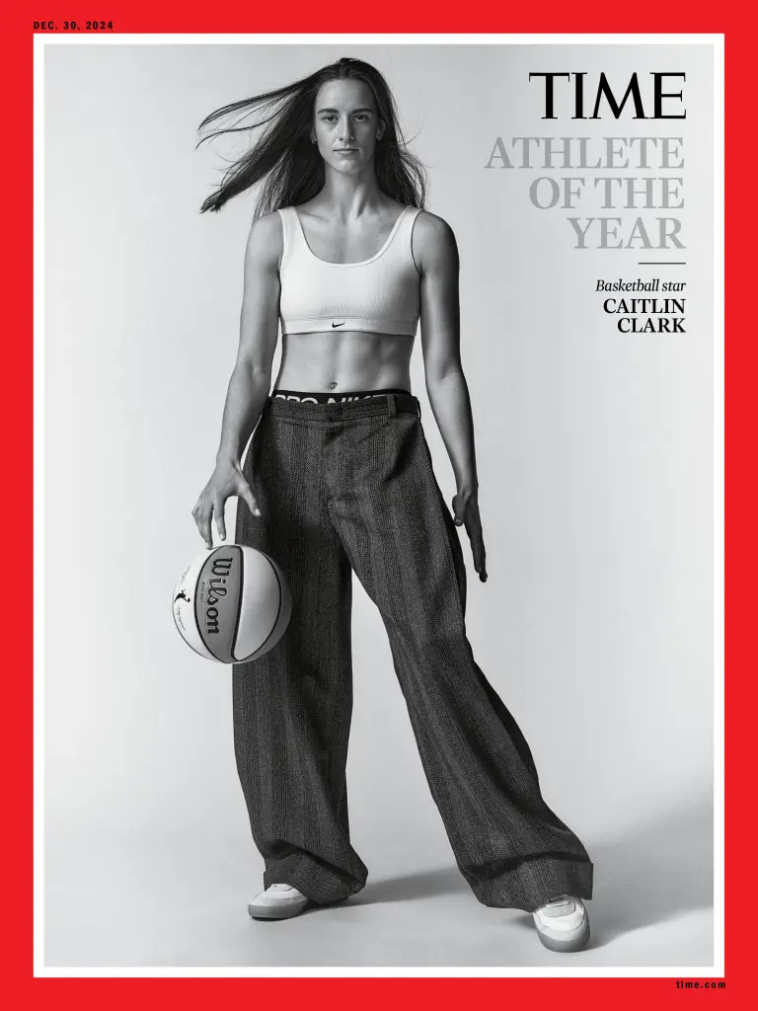The lights on Caitlin Clark have always shined bright, and the woman with the wide world of women’s basketball on her shoulders has never shied away. Not from the attention, not from the scrutiny, not from her deep-seated belief that she, too, walks on the shoulders of giants.
And, for this, she’s always drawn ire.
In interviews for her Time Magazine Athlete of the Year cover story, Clark spoke at length about the racial underpinnings behind her explosion to fame in a sport and league that, historically, has been dominated by Black women.
And Megyn Kelly was disgusted.
“Look at this,” the media personality wrote in a post to X Tuesday. “[Clark]’s on the knee all but apologizing for being white and getting attention. The self-flagellation. The ‘oh [please] pay attention to the black players who are REALY (sic) the ones you want to celebrate.’ Condescending. Fake. Transparent. Sad.”
Clark, in her interview, told Time, “I want to say I’ve earned every single thing, but as a white person, there is privilege. A lot of those players in the league that have been really good have been Black players. This league has kind of been built on them.
“The more we can appreciate that, highlight that, talk about that, and then continue to have brands and companies invest in those players that have made this league incredible, I think it’s very important. I have to continue to try to change that.
“The more we can elevate Black women,” Clark concluded, “that’s going to be a beautiful thing.”
In numerous media appearances, Clark has cited the Black players who built the game: Lisa Leslie, Sheryl Swoopes, Cynthia Cooper, Dawn Staley and Maya Moore.
Their legacies can’t be disputed, but their influences pale in comparison to Clark’s.
The narrative that women’s basketball is “having a moment” has become as ubiquitous as the record-setting. Record-setting on the court. In television ratings. At the box office. In sponsorship revenue. In merchandising sales. The list goes on.
And as that narrative has grown, so too has the racial one. The theme has — and always will — loom large over Clark’s story.
The moment when that narrative bloomed into the cultural consciousness came as the clock ticked down on the 2023 NCAA women’s basketball title game.
Angel Reese of the soon-to-be national champion LSU Tigers pointed to the joint of her finger, showcasing for Clark the spot where her championship ring would sit, and also doing a “you can’t see me” gesture.
The taunt changed Reese’s life. Clark’s, too.
The perceived rivalry between Reese and Clark has been a constant theme throughout the sport’s booming growth since.
“I don’t get that at all,” Clark said. “We’re not best friends, by any means, but we’re very respectful of one another. Yes, we have had tremendous battles. But when have I ever guarded her? And when has she guarded me?”










